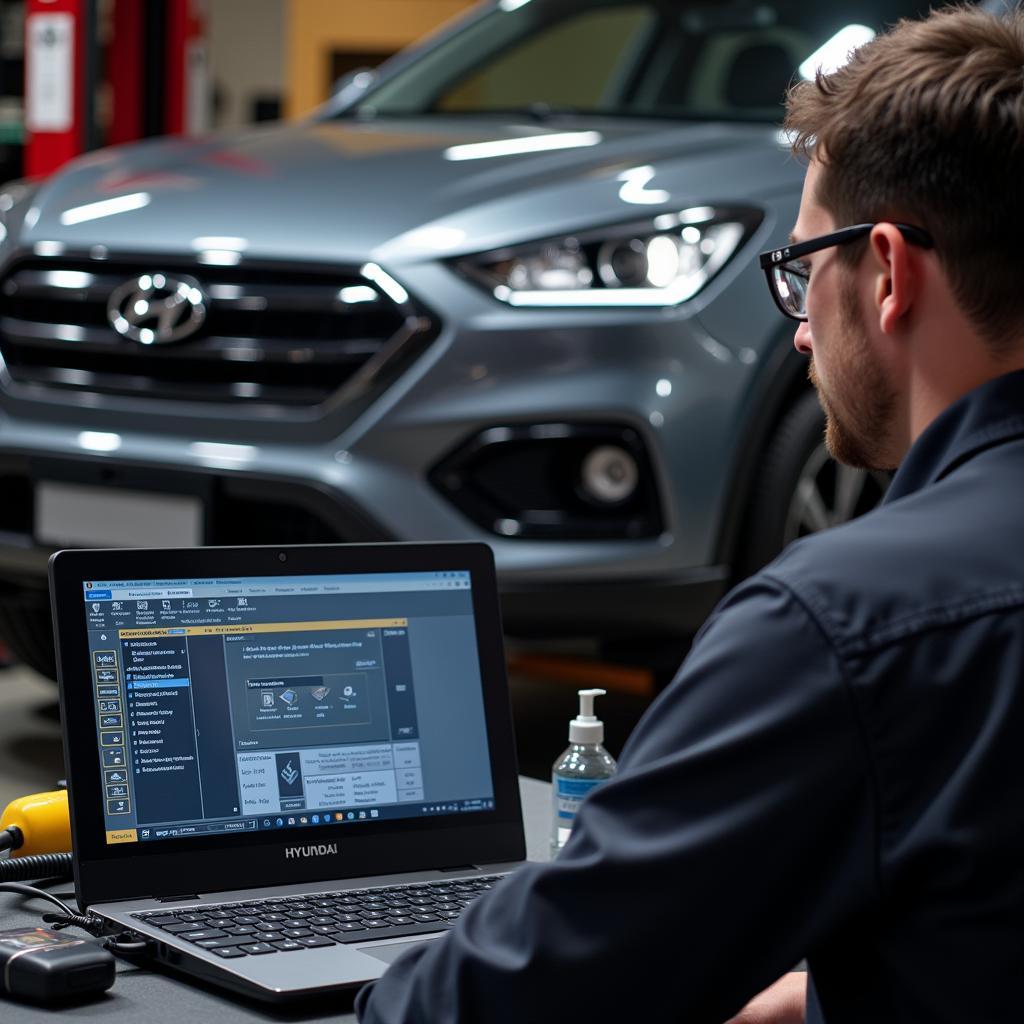If you’re driving a Hyundai and see a brake warning light flash on your dashboard, it’s a clear sign that your vehicle needs immediate attention. While all modern cars have some type of brake warning light, Hyundai’s system is designed to alert you to potential issues with your braking system, ensuring your safety on the road.
Understanding Your Hyundai’s Brake Warning Light
Your Hyundai’s brake warning light is more than just an indicator; it’s a crucial component of your vehicle’s safety system. It’s designed to illuminate when it detects a problem, giving you time to address the issue before it escalates into a dangerous situation.
Here’s what your Hyundai’s brake warning light might be telling you:
- Parking Brake Engaged: This is the most common reason for the light to illuminate. If the light comes on as soon as you start the car, it usually means your parking brake is still engaged.
- Low Brake Fluid: Brake fluid is essential for your car’s braking system to function properly. A low fluid level can hinder braking performance and could signal a leak.
- Brake System Malfunction: A more serious issue, a continuously illuminated brake warning light could signify a fault within the anti-lock braking system (ABS) or another electronic component.
What to Do When Your Hyundai’s Brake Warning Light Turns On
Regardless of the reason, a glowing brake warning light should never be ignored. Here’s what you should do:
- Safely Pull Over: As soon as you notice the light, find a safe location to pull over and assess the situation.
- Check Your Parking Brake: Ensure your parking brake is fully disengaged. If the light goes off, you can likely continue driving.
- Inspect Brake Fluid: If the parking brake isn’t the issue, carefully check your brake fluid level. Consult your owner’s manual for the location of the reservoir and the recommended fluid type.
- Seek Professional Help: If the brake fluid is low or you suspect a more serious issue, it’s crucial to contact a qualified Hyundai technician immediately.
“It’s always better to be safe than sorry when it comes to brakes,” says master Hyundai technician, James Kim. “Ignoring a brake warning light could lead to costly repairs or, even worse, an accident.”
Remote Diagnostics and Software Solutions for Hyundai Brake Issues
In the age of technology, remote diagnostics and software solutions play an increasingly important role in diagnosing and resolving vehicle issues, including brake-related concerns.
- Remote Diagnostics: Specialized software allows technicians to remotely access your Hyundai’s onboard computer system, analyzing error codes and identifying potential problems with your brakes.
- Software Updates: Often, a software update can address minor glitches or bugs affecting your Hyundai’s braking system. These updates can be installed remotely, saving you a trip to the dealership.
 Hyundai Remote Diagnostics
Hyundai Remote Diagnostics
Keeping Your Hyundai’s Brakes in Top Condition
Prevention is key to avoiding unexpected brake problems. Regular maintenance is essential:
- Routine Brake Inspections: Have your brakes inspected by a qualified Hyundai technician at least once a year or as recommended in your owner’s manual.
- Timely Brake Pad Replacements: Worn brake pads can compromise your stopping distance and damage your rotors.
- Quality Brake Fluid: Use only high-quality brake fluid that meets your Hyundai’s specifications.
By staying proactive and addressing any warning signs promptly, you can ensure the longevity and reliability of your Hyundai’s braking system, keeping you safe on the road.
